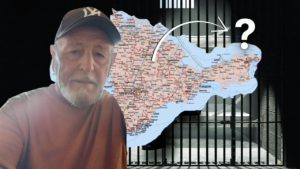“It Would Have Been Better if They Had Shot Me in the Head”: Journalists Discovered Who Was Involved in the Torture and Trial of Kherson Resident Roman Tretiakov
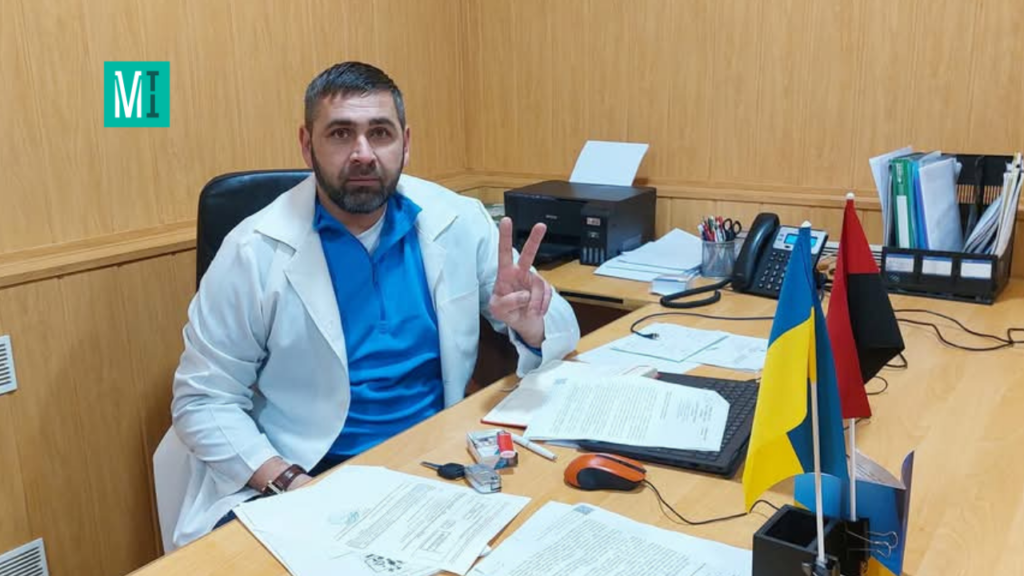
Ukraine lost control over Kherson in the early days of the full-scale invasion. The city and almost the entire region fell under Russian control. The Russians established administrative bodies. They abducted, looted, executed, and tortured civilians. Despite this, the locals held peaceful protests, and a resistance movement emerged. One of its participants was Kherson resident Roman Tretiakov, so it was only a matter of time before the occupiers came for him. This happened on August 4, 2022. Tretiakov woke up to the sound of his apartment door being sawed open. He failed to escape. The occupiers forced him to confess to sabotage activities, but he refused. For that, he was taken captive for 19.5 months, where he endured electric torture and starvation.
Since 2019, Roman Tretiakov was a reservist in Kherson’s Territorial Defense forces, attending training sessions twice a year. In the 2000s, he served in the Naval Special Forces. There, he met the future commander of Kherson’s Territorial Defense Battalion. He came to him on February 26, 2022, to defend the city.
— All the security forces abandoned Kherson; only the Territorial Defense remained. Ihor gave instructions over WhatsApp, and I carried them out together with the group.
— We would drive around the city and observe. We didn’t live with our families but stayed in a safe house belonging to one of our group members. When the Russians entered on March 1, we went to the Molodizhny Beach to build barricades and wait for them, — Roman Tretiakov recounts.
The man moved around the city in a car without license plates, attended peaceful protests, streamed live broadcasts, filmed the occupiers’ positions, and handed out yellow-and-blue ribbons to Russian soldiers. However, since many collaborators lived in the city, the FSB eventually learned about Tretiakov.
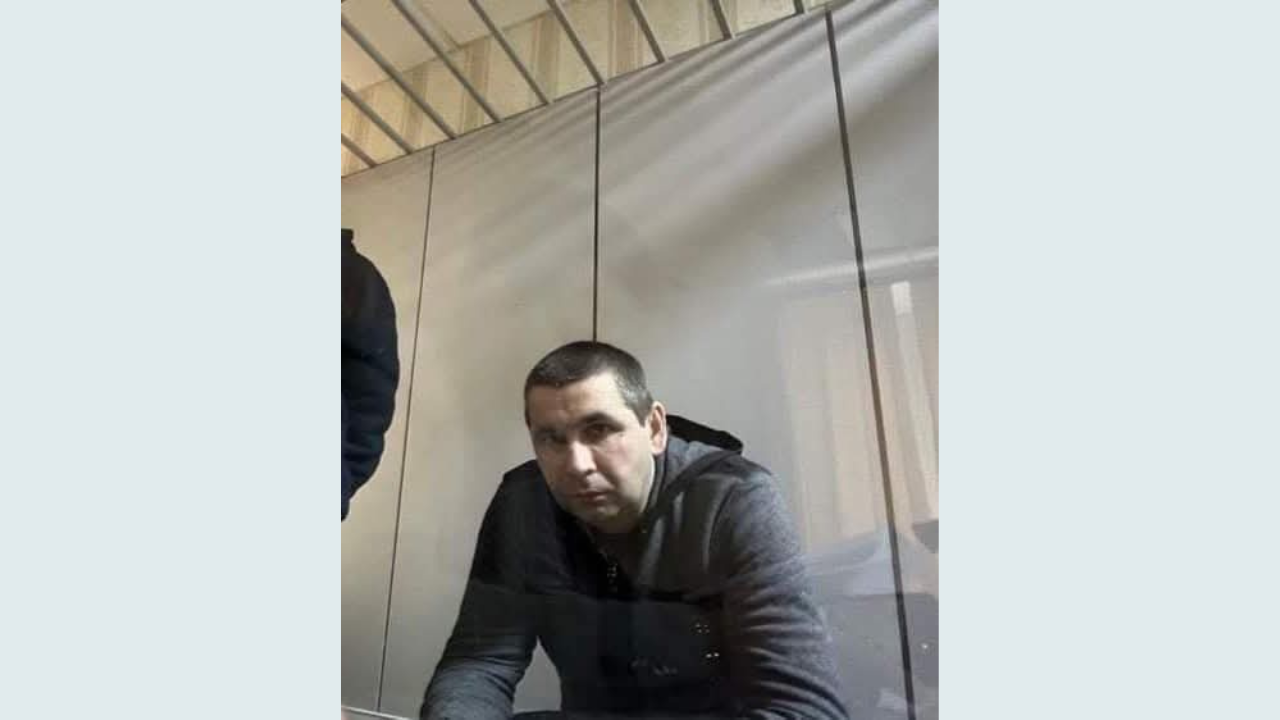
Oleksandr Tretiakov in an occupation court. Photo: Oleksandr Tretiakov’s Facebook Page
Roman ordered his family to flee Kherson, but he stayed behind to assist Ukrainian intelligence services and care for his ailing father and mother-in-law. The Russians searched his relatives’ apartments, where they found an assault rifle, a grenade, and a bulletproof vest. They also detained his ex-wife’s brother.
— Then I realized the circle was tightening, and they were about to arrest me. So I withdrew some money, left it with my father-in-law, told him I didn’t know when I would return, and then went to a safe apartment. On August 3, it was my wife’s birthday, so I went to a pizzeria, got 100 grams of cognac, and we video-called each other. I came home, and at 7:30 a.m. the following morning, I heard my door being sawing down, — Tretiakov recalls.
He failed to escape through the window. He managed to get rid of one phone, smashed the second, changed clothes, lit a cigarette, and waited for them to break down the door. Eventually, he decided to open it himself. Around eight Russian National Guard officers and five FSB agents entered with shields and assault rifles.
— They split both my eyebrows open with a rifle, threw me face down on the floor, and started having their fun. They would beat me with rifles, feet, boots, fists, and something that felt like chains. They would hit me with everything, everywhere. Later, from photos, I saw that even the irons were covered in blood, and cords from the iron had been cut off. The torture lasted for about 30 minutes while they were searching, — Roman recalls.
Pre-trial Detention Center and Torture
After that, they pulled a hat over his head and took him away. He ended up in a temporary detention facility on Teploenergetikiv Street, where he was tortured, as they demanded him to disclose information about members of sabotage groups in the Kherson region. During the first nine days, he was constantly tortured. Tied up, handcuffed, his pants removed, wires connected to his genitals, he was forced to shout pro-Russian slogans.
— I could no longer walk, talk, or respond. They wanted to cut off my ear. One of them pressed the barrel of a pistol against my knee and fired next to it, — Tretiakov recalls. — I didn’t care anymore. I thought it would have been better if they just shot me in the head.
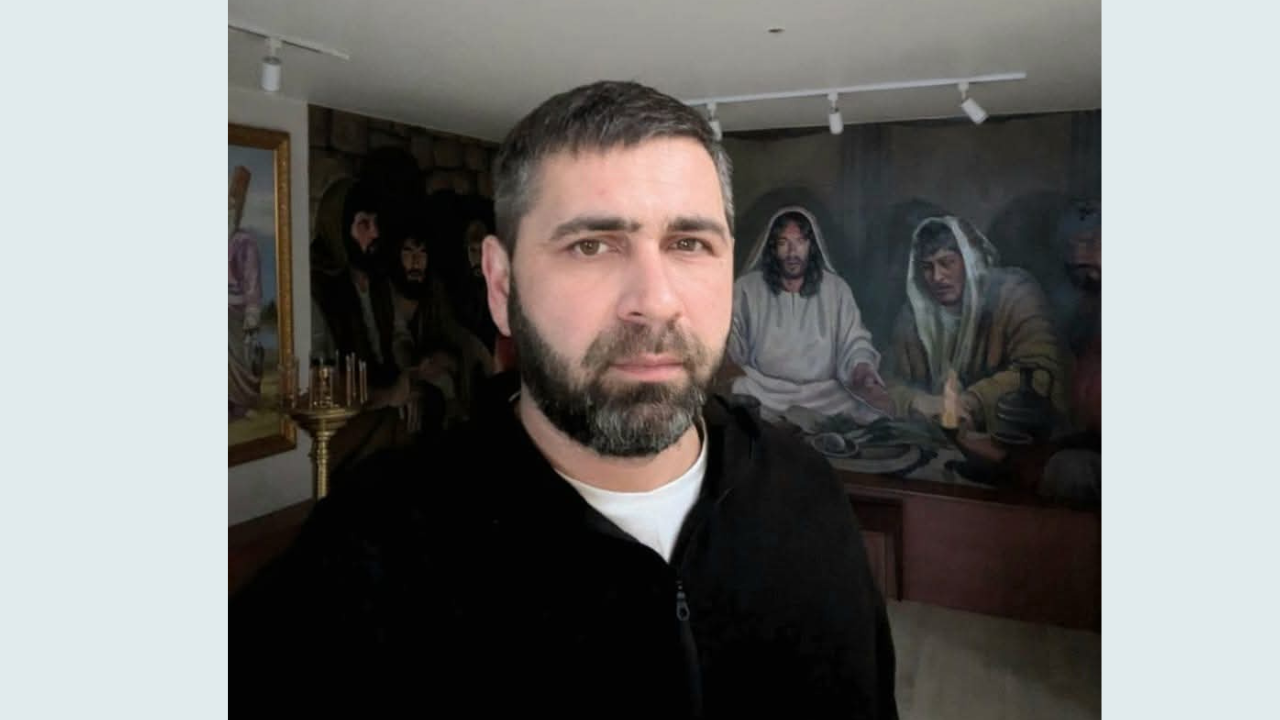
In the detention center, Oleksandr Tretiakov was brutally tortured. Photo: Oleksandr Tretiakov’s Facebook Page
The torture stopped for a while. Then Roman was transferred to a pre-trial detention center, which the occupiers had set up in colony No. 61. This facility was headed by Oleh Tiutiurai, who, before the full-scale invasion, was an assistant warden in the Northern Correctional Colony No. 90. Tiutiurai voluntarily collaborated with the occupiers and, among other things, was involved in the deportation of prisoners. He transported 150 people, along with their personal files, to Russian prisons and colonies in occupied territories. In 2022, Tiutiurai’s car was blown up, but he survived. According to evocation.info, he was involved in ‘cleansing operations’ in areas where pro-Ukrainian people remained. Ukrainian law enforcement charged Tiutiurai with violations of the laws and customs of war, and he was sentenced in absentia to 14 years in prison with confiscation of property.
At the pre-trial detention center on Perekopska Street, the torment of Roman Tretiakov resumed. He was interrogated using a lie detector, followed by torture with electric shocks. The man describes those eight hours as the worst of his life. He was also handcuffed, and a pillowcase was placed over his head while water was poured over him in a way that made it impossible to breathe. Tretiakov recalls biting through the fabric and tearing the skin on his hands down to the bone as he tried to free himself from the handcuffs. The orders to torture him were given by a Russian who identified himself as Salych.
The head of the occupation detention center, Tiutiurai, sent Tretiakov for a medical examination, and a month later, Roman was transferred to the occupied Crimea. There, he was held in two detention centers — No. 2 in Simferopol and No. 2 in the village of Chonhar. In Simferopol, the prisoners were greeted by the ‘Vympel’ military unit and the Russian Federal Penitentiary Service. The cells were equipped with video cameras and audio recorders. Until the New Year, Roman was beaten daily and barely fed, leading to a weight loss of about 20 kilograms.
— We weren’t allowed to do anything: they didn’t give us pens, books, or paper. Sitting on the beds was also forbidden. After the New Year, the Special Forces guards were withdrawn, and we were finally allowed to have books. They would beat us occasionally, but it wasn’t as severe, and they allowed us to sit down.
Roman Tretiakov remained in Simferopol until June 2023, and then he was transferred to Chonhar. The man mentions that in Chonhar, there were no Russians but collaborators. From Chonhar, he was taken to ‘trials’ in Henichesk, Skadovsk, and Novotroitske, with about 20 hearings held in total.
Who is Involved in Roman Tretiakov’s Case
Roman Tretiakov did not confess to anything else except for possession of arms. Therefore, on February 6, 2024, the occupation court of Skadovsk found him guilty of the illegal acquisition and possession of weapons under Part 1 of Article 222 of the Criminal Code of the Russian Federation and sentenced him to 3 years and 2 months in prison.
Since Tretiakov spent 19.5 months in detention centers before the verdict, each day was counted as two days of punishment. As a result, he was released on March 13, 2024. Currently, he is living in Zakarpattia.
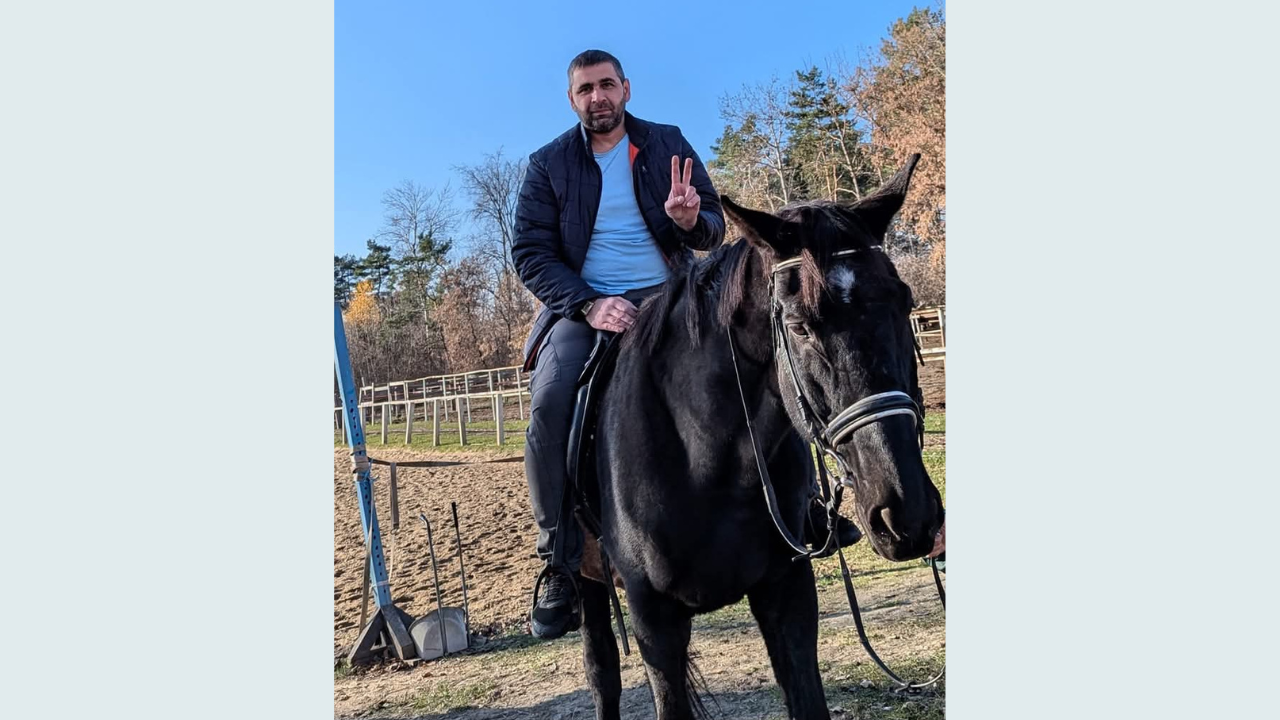
After the occupation of Kherson, Oleksandr Tretiakov hid in a safe apartment. Photo: Oleksandr Tretiakov’s Facebook Page
The occupation judge, Hennadii Khokhlov, announced the illegal verdict to Tretiakov. The session also included prosecutor’s assistant Serhii Lapotnikov and secretary D. L. Skitsana.
Previously, Khokhlov was a justice of the peace in the Republic of Bashkortostan, mainly dealing with cases related to traffic accidents and utility payments. In September 2023, Volodymyr Putin appointed him as a judge of the occupation city court in Kherson.
Three individuals served as witnesses in Roman Tretiakov’s case: Ivan Dubovyi, an officer of the Russian Ministry of Internal Affairs’ Criminal Investigation Department; Mykola Belov, an investigator with the Russian Ministry of Internal Affairs; and expert Ihor Stefan.
Dubovyi is Ukrainian and voluntarily collaborated with the occupiers. It was reported that, alongside the Russians, he participated in searches of Ukrainian police officers, seizing firearms and ammunition from them. Before the invasion, he worked in the Henichesk district police department. He has been notified of suspicion of treason.
Before the occupation, Belov was a senior investigator at the Kherson City Police Department of the Ministry of Internal Affairs of Ukraine. He also voluntarily took the position of ‘senior investigator’ in the occupation police and became a senior lieutenant in the Russian police. Mykola Belov participated in the interrogation of civilians, using force to obtain information about the locations of the Ukrainian Armed Forces, and pressured Ukrainians into cooperating with Russia. In 2024, Belov was in absentia charged with treason and collaborationist activities.
During his interview with the MIHR, Tretiakov also mentioned the names of others involved in his case: Yuliia Berlimova, Volodymyr Saldo, Vitalii Buliuk, and Oleksandr Kobets.
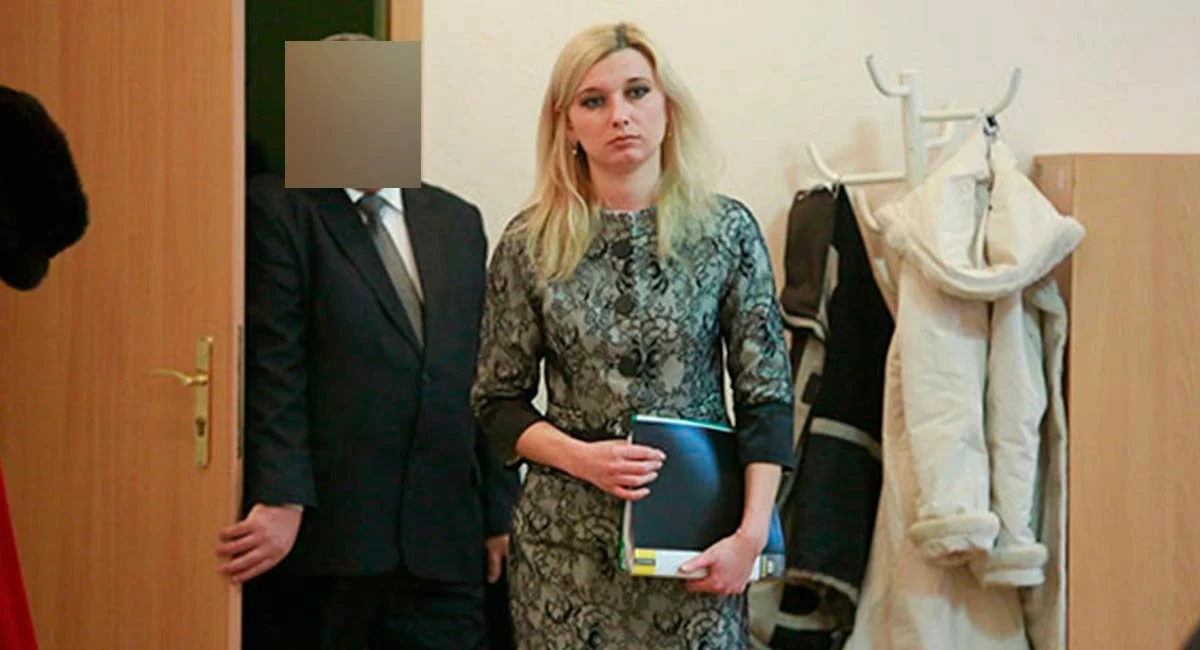
Former head of the Henichesk District Court, Yuliia Berlimova, sided with Russia in 2022. Photo: Judicial Information Bureau
Roman crossed paths with Yuliia Berlimova at some trials in Henichesk. Berlimova is a collaborationist judge. She previously headed the Henichesk District Court in the Kherson region. In 2022, she sided with Russia and, according to the investigation, provided information to Russia about military personnel, civilians, and court employees. She also participated in competitions for positions in the so-called ‘courts’ established by the occupation authorities, with Russian citizenship a mandatory requirement for candidates. In 2024, she was notified of suspicion of treason and collaborationist activities.
The former deputy of the Kherson regional council, Saldo, collaborated with the occupiers and headed the regional administration. He helped the Russians seize the building of one of the city councils in the region, convinced locals not to resist the occupiers, and provided Russian representatives with information about a local resident who defended the community interests. Vitalii Buliuk headed the customs office in the Kherson region before the occupation and later became a regional council deputy. His name had come up in the context of corruption cases. During the war, Buliuk sided with the enemy and now holds the position of first deputy head of the occupation government of the Kherson region.
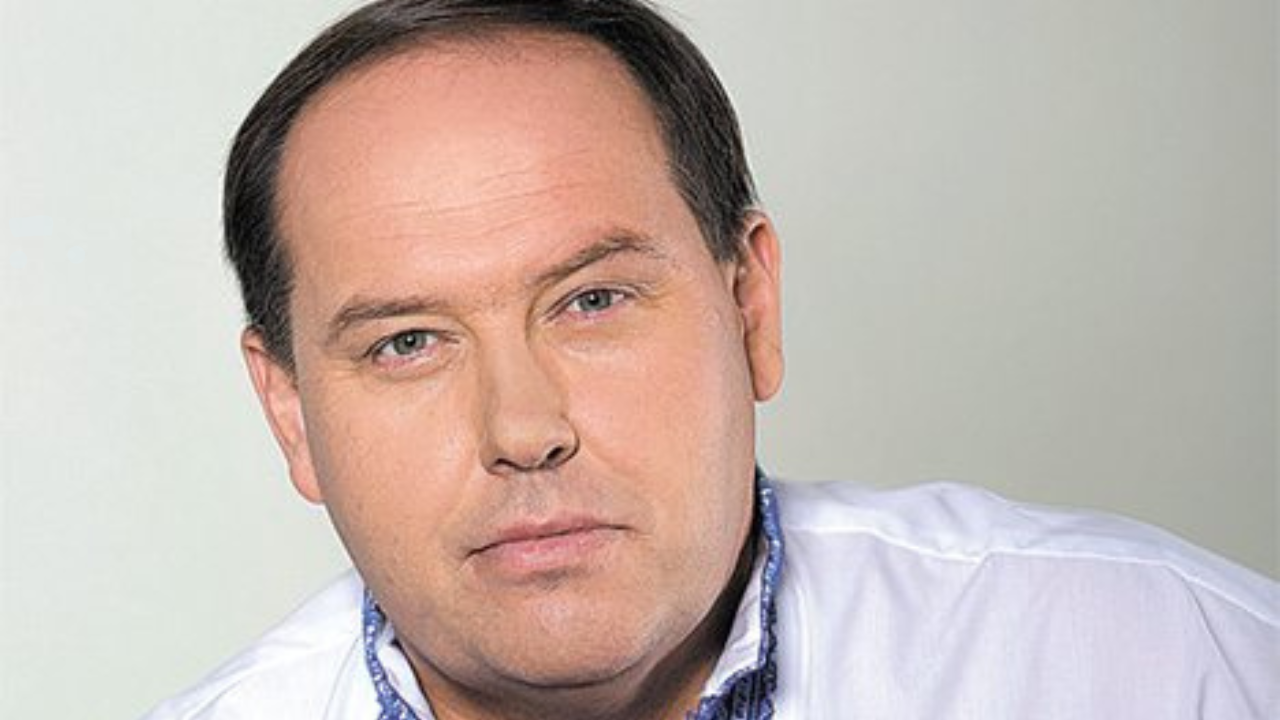
Vitalii Buliuk headed the customs office in the Kherson region before the occupation. During the war, he sided with the enemy. Currently, he holds the position of first deputy head of the occupation government of the Kherson region. Photo: nashkray.org
Oleksandr Kobets is a pro-Russian Ukrainian politician, former KGB and SSU agent, and collaborator. In April 2022, the Russians appointed him the head of the Kherson occupation administration.
Author: Yana Ilkiv, journalist MIHR
The article was prepared with the participation of Kateryna Chernata, a documentarian MIHR.
This article was published with the support of the European Endowment for Democracy (EED). Its content does not necessarily reflect the official position of the EED. The information or views expressed herein are solely the responsibility of its authors.




